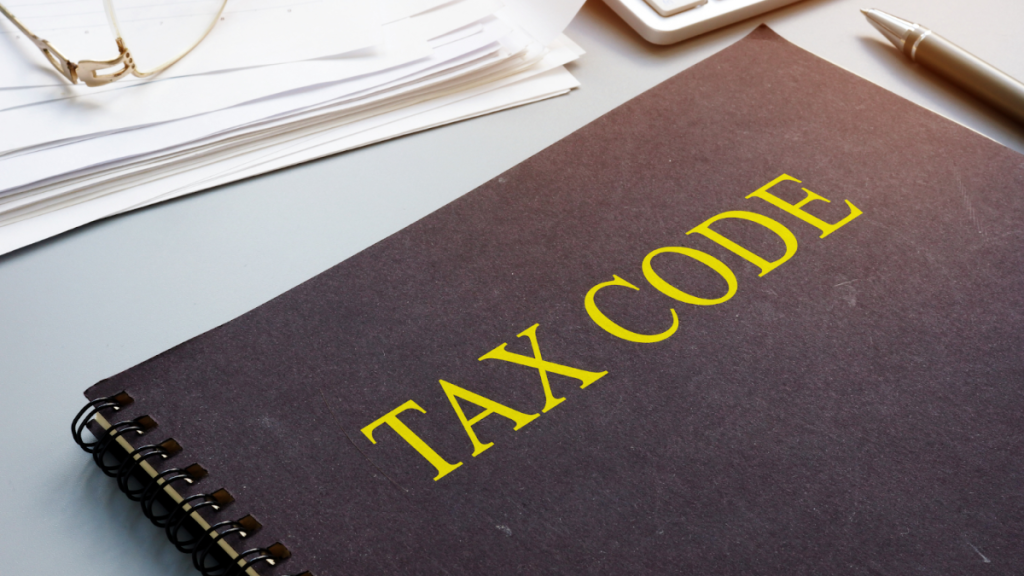The tax process seems to be more complex, and few words strike more fear into the hearts of taxpayers than “tax audit.” An IRS tax audit is a formal review conducted by the IRS to verify the accuracy of your tax return. In FY 2023, the IRS closed 582,944 tax return audits, leading to $31.9 billion in recommended additional tax assessments. This high volume of audits and significant financial impact highlights the importance of proactive tax audit services to help individuals and businesses navigate complex IRS procedures and safeguard their financial interests
Whether you’ve been selected at random or because certain elements of your return raised red flags, being audited doesn’t automatically mean you’ve done something wrong. However, it’s essential to understand the process and take steps to protect yourself.
In this comprehensive guide, we will break down what a tax audit is, how to prepare for it, what you can expect from the process, and how to best safeguard yourself against potential issues. Plus, we’ll introduce you to J. David Tax Law’s specialized services, which focus on tax debt disputes with the IRS and state tax authorities, and provide you with the support you need during a tax audit.
What is a Tax Audit?
A tax audit is a review of your financial information and tax debt conducted by the IRS to ensure you’ve reported everything correctly.
Audits can occur for several reasons, and it’s important to remember that being selected for an audit doesn’t necessarily mean you’ve made an error or are guilty of wrongdoing.
While some audits are conducted randomly, others are triggered by inconsistencies in your financial records. Audits can range from a simple correspondence audit (handled by mail) to a more detailed field audit where an IRS agent visits you in person. Regardless of the type of audit, it’s critical to be prepared and proactive.
Types of IRS Tax Audits
There are three main types of tax audits that the IRS conducts:
Correspondence Audit
The simplest form of audit is where the IRS requests additional documentation or clarification through the mail. In 2022, nearly 90% of all IRS audits were conducted via correspondence, making it the most common audit type.
Office Audit
A more detailed review takes place at an IRS office where you’ll be asked to bring specific documents for review. According to IRS data, about 5-7% of all audits are conducted at IRS offices.
Field Audit
The most comprehensive audit is where an IRS agent visits your home, business, or accountant’s office to review your records in person. Field audits make up less than 3% of all audits, but they tend to focus on more complex tax debt, particularly those involving high-income businesses.
Each audit type varies in complexity, but preparation is key regardless of which type you face.
Why Do Tax Audits Happen?
The IRS uses both random selection and algorithms to flag debt for audits. The following are common reasons for an audit:
Random Selection: The IRS uses statistical formulas to select tax returns randomly.
Discrepancies in Financial Information: Inconsistent income reporting, large deductions, or expenses that don’t align with your income can raise red flags. For example, self-employed individuals are five times more likely to be audited than salaried employees due to the complexity and variability of their returns.
Third-party Reporting: The IRS cross-references the information provided by your employer, bank, or other third parties with the information on your tax debt. Discrepancies in reported income account for nearly 50% of all IRS audit triggers.
By understanding why audits happen, you can avoid the common mistakes that trigger them.
Common Red Flags That Trigger an Audit
Some behaviors or patterns are more likely to attract the IRS’s attention. These include:
Significant Deductions or Losses: If you claim unusually large deductions or report substantial business losses, the IRS may scrutinize your debt.
Unreported Income: Failure to report all income, especially from freelance work or investments, can trigger an audit.
Unusual Donations or Deductions: If the deductions you claim seem disproportionate to your income, it might raise eyebrows.
Large Cash Transactions: Large cash deposits or withdrawals can also be a red flag.
Being aware of these red flags can help you avoid situations that increase your chances of being audited.
How to Prepare for a Tax Audit
If you’re selected for a tax audit, it’s crucial to be proactive and organized. Here’s how to prepare:
1. Gather Your Financial Records
Make sure you have all the necessary paperwork, including tax returns, W-2s, 1099s, receipts, bank statements, and any correspondence with the IRS. The more organized you are, the smoother the audit process will be.
2. Consult with a Tax Attorney
Dealing with the IRS can be overwhelming. Working with an experienced tax attorney like the team at J. David Tax Law can ensure that your rights are protected and that you’re fully prepared for what’s ahead. A tax attorney can help interpret IRS requests, represent you in meetings, and help negotiate on your behalf.
3. Understand the Fresh Start Program
The IRS offers a Fresh Start Program that can help individuals who owe back taxes. If you’re facing a tax audit and owe the IRS money, this program might allow you to settle your tax debt for less than what you owe. Familiarize yourself with the terms and qualifications of this program in case it applies to your situation.
4. Respond Promptly and Accurately
Whether you’re involved in a correspondence or field audit, timely and accurate responses are essential. Avoid providing more information than the IRS asks for; instead, stick to their specific requests.
Do You Get Your Tax Refund if You Get Audited?
Yes, you can still receive your tax refund while being audited, although it may be delayed until the audit is completed. The IRS typically withholds refunds if there are unresolved issues, but this doesn’t automatically mean your refund will be forfeited. In 2022, approximately 9% of audits led to adjusted refunds or reduced amounts, but in most cases, taxpayers eventually received their refunds after the audit concluded without major discrepancies.
The IRS Fresh Start Program
The IRS Fresh Start Program offers taxpayers a way to resolve their tax debts and avoid future audits. It provides options such as installment agreements and offers in compromise to help you pay off your debts more affordably.
More than 70,000 offers in compromise were accepted by the IRS between 2020 and 2022, allowing taxpayers to settle their debts for less than they owed.
Over 3.5 million installment agreements were set up under the Fresh Start initiative, providing relief to those struggling with tax debts.
If you’re dealing with a tax debt issue, our IRS tax audit attorneys can help you explore your options under the IRS Fresh Start Program and protect you from future audits.
Common Myths About IRS Tax Audits
Many misconceptions surround the tax audit process. Let’s debunk some of the most common myths:
Myth #1: Only High-Income Earners Get Audited: While it’s true that higher-income individuals face greater scrutiny, anyone can be audited.
Myth #2: Filing an Extension Increases Audit Risk: Filing an extension has no impact on your audit risk. The IRS will still process your debts and return as usual.
Myth #3: The IRS Will Show Up at Your Door: In most cases, audits are conducted via mail or office appointments. Field audits are rare and typically reserved for more complex cases.
How to Protect Yourself During a Tax Audit
Facing an audit can be stressful, but the key is to remain calm and organized. Here’s what you should do:
1. Maintain Accurate Records
Keeping accurate and organized records throughout the year is key to avoiding audit issues. Ensure that all income is reported and that you can substantiate any deductions or credits claimed.
3. Know Your Rights
You have the right to professional representation, to appeal any decision, and to request more time to gather documentation. Don’t let the IRS intimidate you—assert your rights and make informed decisions throughout the audit process.
2. Hire a Tax Professional
If you’re facing an audit, having a professional in your corner can be invaluable. A tax attorney can represent you during the audit, help negotiate a settlement, or guide you through the Fresh Start Program if necessary.
How Our Tax Audit Service Can Help You
At J.David Tax Law, we specialize in defending clients against IRS audit representation. Our team of tax attorneys is skilled in navigating the complexities of tax disputes and ensuring the best possible outcome for our clients. We understand the stress that comes with an audit or tax debt and our goal is to take the burden off your shoulders by handling the process from start to finish.
Unlike some tax firms, J. David Tax Law focuses solely on tax disputes, meaning our tax attorneys are experts in helping you resolve issues related to IRS audits, tax liens, wage garnishments, and more.
Final Thoughts: Protecting Yourself Against Tax Audits
A tax audit can be a nerve-wracking experience, but by understanding the process, preparing adequately, and seeking professional help when necessary, you can protect yourself and minimize the potential consequences.
If you are dealing with a tax dispute or need help preparing for an audit, J. David Tax Law offers the expertise and support you need. Our focus on IRS and state tax authorities makes us a trusted partner in resolving your tax issues.
Your Tax Relief Questions, Answered
You should gather any records related to the areas of your return that are under scrutiny. These documents can include:
- Tax debts for the year being audited
- W-2 and 1099 forms
- Receipts for business expenses or charitable donations
- Bank statements and investment records
- Mortgage interest statements
- Proof of dependents, if applicable
The IRS Fresh Start Program is designed to help taxpayers settle their tax debts more easily and avoid severe penalties. It offers options such as:
- Installment agreements: Allowing you to pay your tax debt over time.
- Offers in compromise: Settling your tax debt for less than what you owe, based on your ability to pay.
- Penalty abatement: Reducing or eliminating certain penalties if you meet specific criteria.
While not every audit requires legal representation, hiring an experienced tax attorney is highly advisable, especially if the audit is complex, involves significant tax debt, or if you’re unsure about the process. A tax attorney can:
- Represent you in front of the IRS
- Ensure that your rights are protected
- Help you avoid mistakes that could lead to penalties
- Negotiate with the IRS on your behalf















